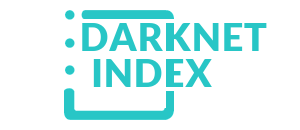The darknet, also known as the dark web, is a concealed section of the internet that's inaccessible via standard search engines. You can only access it using special software, settings, or authorization. This area comprises websites and content that are purposely kept hidden from public view.
Accessing darknet requires using Tor Browser, a special web browser that routes your internet traffic through a global network of relays managed by volunteers. This way, it becomes very difficult to trace which websites you're visiting, and these sites won't know where you are located.
When visiting the dark web, use a secure browser like Tor, do not reveal any of your personal information, and don't open suspicious files or links to stay safe.
The Darknet is often utilized for secure communication, discreet information or file sharing, anonymous research without identity exposure, and occasionally for engaging in illicit activities. It is also recognized for hosting underground black markets(darknet markets), whistleblowing platforms, and discussion boards that champion freedom of speech.
While accessing Darknet Markets themselves is typically not against the law in most places, engaging with illicit goods within them is generally considered a crime. On the other hand, some people might visit Darknet Markets for lawful purposes such as research, journalistic work, or simply to explore online communities. It's essential to know the local laws regarding online activities, and be cautious when using these platforms to avoid any potential issues.
Google's darknet monitoring service will be offered for free to all users.
Google has been monitoring darknet leaks of stolen account information for Google One subscribers, such as phone numbers and physical addresses, since last year. However, starting later this month, Google’s dark web reports will be accessible to anyone with a Google account.
The transition to make the dark web reports available to all Google account users is outlined on a Google support page. This free service will be integrated into Google’s “results about you” page, where users can currently review personal contact information that Google has indexed and request its removal from search results. Google aims to provide a combined solution to help users protect their online presence by offering this monitoring feature.
Although there are other services available that scan the dark web for data and send alerts, Google users may find it convenient to have all monitoring features in one place. However, this change means that the perks added last spring for over 100 million paid-up Google One subscribers have been removed. Additionally, Google recently announced the shutdown of its VPN by Google One service. While these may not have been the primary reasons for signing up for Google One, it can be disappointing to see benefits disappear without a corresponding decrease in price.
The main motivation for signing up for Google One is to increase storage for Google accounts, including photos and Gmail storage. While there are other perks like premium Google Meet features and the ability to share storage with multiple people, these may not be compelling enough. Higher tiers of Google One offer AI features powered by Gemini, starting at $19.99 a month, that may be more enticing for some users.
